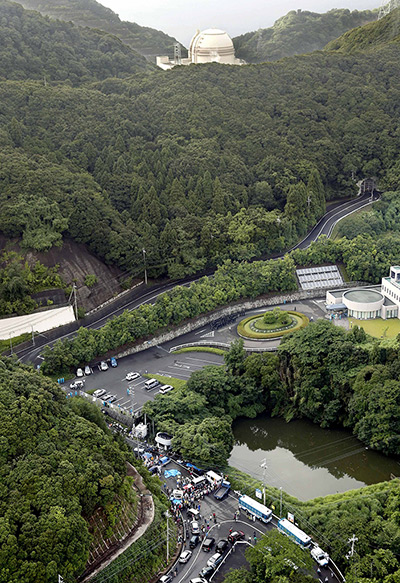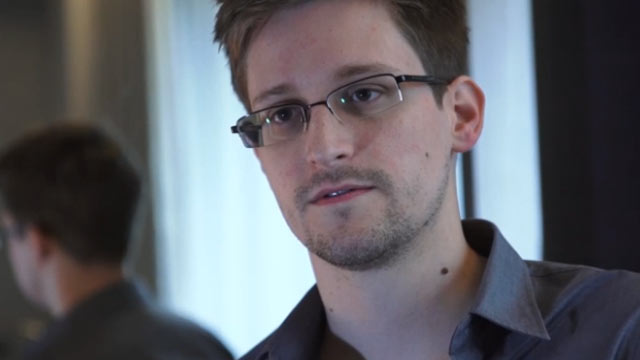There are about 700 people in the town of Coria del Río in Seville, Spain whose surname is "Japón" (originally "Hasekura de Japón", according to Wiki). They are considered to be the descendants of a Japanese diplomatic mission headed by Tsunenaga Hasekura from 1613 through 1620. Hasekura was sent on a global mission by his lord Masamune Date of Sendai-han (that includes today's Miyagi Prefecture).
It is known that 7 or so of his delegates decided to remain in Coria del Río, and their descendants started to use the surname of "Japón".
Japan's Crown Prince is on an official visit to Spain, and met with the "Japóns" in Coria del Río, proud descendants of the Hasekura delegation, as Asahi Shinbun reports (6/15/2013):
日本との交流400周年を迎えたスペインに、日本を意味する「ハポン」という名字の人たちがいる。その数、1500人。400年前にスペインに渡った支倉常長ら「慶長遣欧使節団」の子孫とされる。14日夜(日本時間15日未明)、同国南部のセビリア市にハポンさんが集い、皇太子さまと懇談した。
It's been 400 years since Spain and Japan first made contact. There are people with the surname "Japón", meaning Japan, in Spain. There are 1,500 of them. They are considered to be the descendants of "Keicho Delegation" led by Tsunenaga Hasekura, who went to Spain 400 years ago. In the evening of June 14, "Japón" people got together in the city of Seville in southern Spain and met with Crown Prince of Japan.
使節団は1614年、セビリア近郊の市コリア・デル・リオに滞在。7人前後が帰国しなかったことが分かっており、郷土史家らは「子孫らが祖国ハポンを名乗り始めた」という説を唱えている。
The delegation stayed in Coria del Río, near Seville, in 1614. It is known that seven or so of the delegation didn't go back to Japan. Local historians believe the descendants of these people started to use the name of their home country Japan as their surname.
ハポンさんたちも日本とのつながりを強く意識する。14日昼にコリア・デル・リオを訪れた皇太子さまを、ハポンさんを中心に1万人近くが出迎え、「ハポン!」コールを上げた。「支倉常長協会」会長のファン・フランシスコ・ハポンさん(44)は「ハポンの名字にみんな誇りを持っている。日本人の特徴である蒙古斑(もうこはん)がある人も少なくない」と話した。
"Japón" people are keenly aware of their connection to Japan. Nearly 10,000 residents including "Japón" people greeted Crown Prince in Coria del Río on June 14 afternoon, chanting "Japón!" Juan Francisco Japón (age 44), chairman of "Hasekura Tsunenaga Association", said, "We are all proud of our surname Japón. Some of us have the Mongolian spots like Japanese."
ファンさんによると、東日本大震災後、ハポンさんたちは支援活動に奔走した。支倉の銅像前で黙祷(もくとう)を呼びかけ、募金やチャリティーオークションをした。コリア・デル・リオもホームページで「こちらに避難したい方には市民権を与えます」と日本向けに発信したという。
According to Juan, after the March 11, 2011 disaster in Japan, "Japón" people did all they could to help Japan. They called for silent prayers in front of the statue of Hasekura, they did fund raising and charity auctions. The town of Coria del Río called to people in Japan on their website, offering citizenship to anyone who wants to escape Japan and come to the town.
1991年に宮城県石巻市を訪問したビクトル・バレンシア・ハポンさん(48)は「石巻の被災後の映像を見て、私たちの遠い親族が被災したかも知れないと思うと、とてもショックだった」と振り返る。
Victor Valencia Japón (age 48) visited Ishinomaki City in Miyagi Prefecture in 1991. He said, "I looked at the images of Ishinomaki after the disaster, and it was very shocking to me, thinking our distant relatives may have been affected."
14日夜、セビリア市のホテルに約30人のハポンさんが集まった。「サムライ精神を持つことが誇らしい」「日本とスペイン交流の懸け橋になりたい」。思いを訴えるハポンさんたちに、皇太子さまは「日本の名前が付く方々にたくさんお会いできて本当にうれしいです」と笑顔を見せた。
In the evening of June 14, 30 "Japón" people gathered at a hotel in Sevilla. They said to Crown Prince, "I'm proud to be the descendant with Samurai spirit", "I want to help in deepening the relationship between Japan and Spain." Crown Prince smiled, and said "I am very happy to meet so many of you with the name Japan."
参加したフェルナンド・ハポン・セビリアさん(49)は「日本由来の400年の歴史を持つハポン姓の私たちにとって、とても名誉な日だ」と語った。
Fernando Japón Sevillia (age 49) said, "For us, with the surname Japón with 400 years of history, this is a very honorable (proud) day."
I didn't know anything about these people in Spain with the "Japón" surname until I read the Asahi article. How wonderful to know there are people in the world proud to be of Japanese lineage (alleged or not proven, it doesn't matter) who continue to care about their very distant "home" country from 400 years ago.









 Tokyo Time
Tokyo Time
![[Most Recent Quotes from www.kitco.com]](http://www.kitconet.com/charts/metals/gold/t24_au_en_usoz_2.gif)

